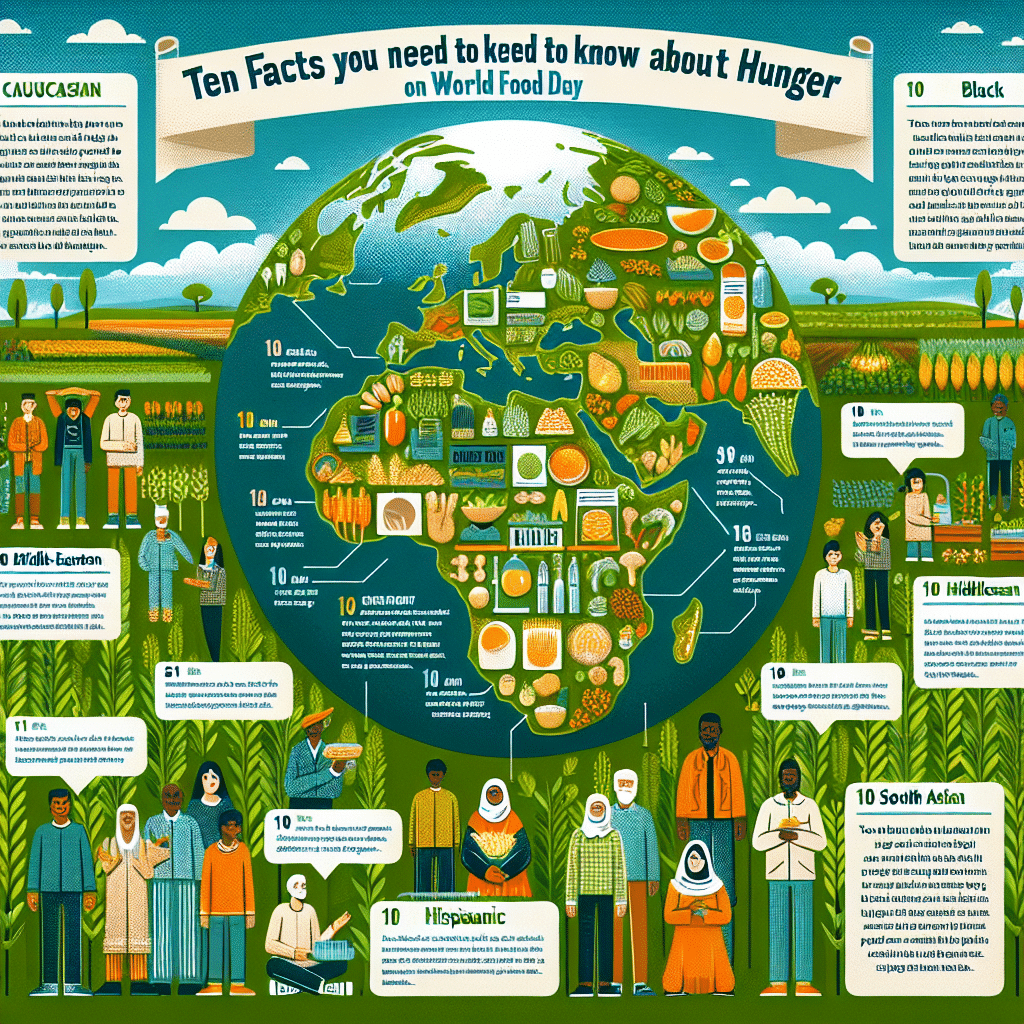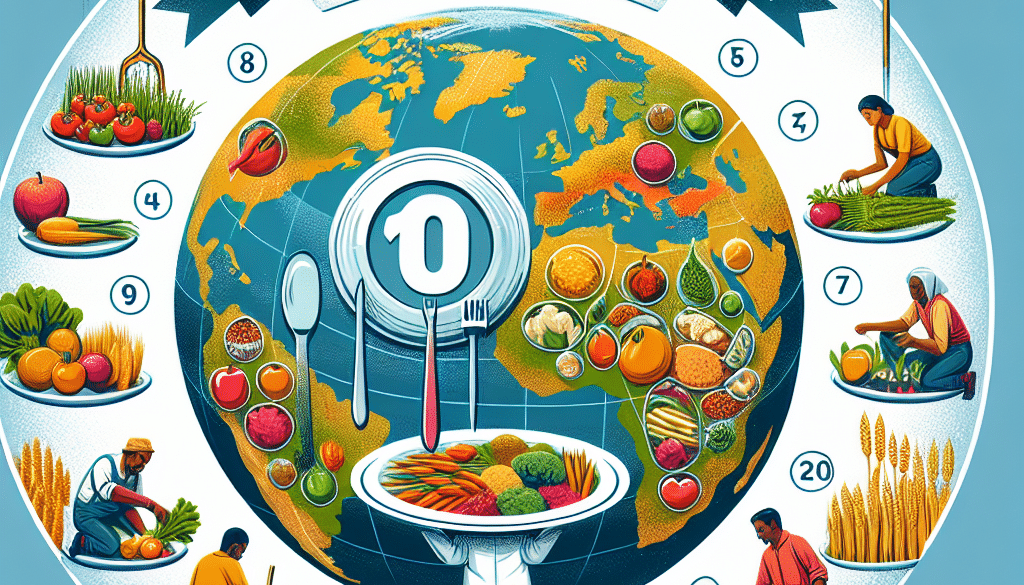Ten Facts You Need to Know About Hunger on World Food Day
-
Table of Contents
- Ten Essential Facts About Hunger on World Food Day
- 1. The Global Scale of Hunger
- 2. Children Are Disproportionately Affected
- 3. The Double Burden of Malnutrition
- 4. The Impact of Conflict and War
- 5. Climate Change Exacerbates Hunger
- 6. The Role of Gender Inequality
- 7. Economic Instability and Food Prices
- 8. The Importance of Sustainable Agriculture
- 9. Food Waste Contributes to Hunger
- 10. Everyone Can Make a Difference
- Conclusion
- Combat Hunger with ETChem’s Protein Products
Ten Essential Facts About Hunger on World Food Day

World Food Day is a day of action dedicated to tackling global hunger. Held annually on October 16th, people from around the world come together to declare their commitment to eradicate hunger in our lifetime. Because food is a basic and fundamental human right, it is important to understand the issues surrounding hunger and how we can make a difference. Here are ten facts you need to know about hunger on World Food Day.
1. The Global Scale of Hunger
Despite the world producing enough food to feed everyone, approximately 828 million people worldwide go to bed hungry each night. Hunger affects every continent, with Asia, Africa, and Latin America being the most impacted regions.
2. Children Are Disproportionately Affected
Children are the most visible victims of undernutrition. Poor nutrition plays a role in at least half of the 5.9 million child deaths each year. Undernourished children are more likely to suffer from developmental delays and long-term health issues.
3. The Double Burden of Malnutrition
Many countries face the double burden of hunger and obesity. While millions suffer from undernutrition, an increasing number of people are overweight or obese due to poor diet and lack of access to healthy food.
4. The Impact of Conflict and War
Conflict is a major driver of hunger. Wars disrupt agricultural production, and combatants often target food resources as a war tactic. As a result, populations in conflict zones are particularly vulnerable to food insecurity.
5. Climate Change Exacerbates Hunger
Climate change has a profound impact on food security. Extreme weather events such as droughts, floods, and hurricanes can destroy crops and reduce food availability, pushing more people into hunger.
6. The Role of Gender Inequality
Gender inequality plays a significant role in hunger and food insecurity. Women and girls often have less access to resources, education, and employment, which can limit their ability to provide food for themselves and their families.
7. Economic Instability and Food Prices
Economic instability can lead to volatile food prices, making it difficult for the poor to afford nutritious food. When prices rise, those with limited resources are often forced to cut back on the quantity and quality of food they consume.
8. The Importance of Sustainable Agriculture
Sustainable agricultural practices are essential for ensuring food security. By using methods that protect the environment, maintain soil fertility, and conserve water, we can produce enough food to feed the growing global population.
9. Food Waste Contributes to Hunger
Food waste is a major issue, with about one-third of all food produced for human consumption lost or wasted. Reducing food waste can help make more food available to those in need.
10. Everyone Can Make a Difference
Individuals, organizations, and governments all have a role to play in ending hunger. By donating, volunteering, and advocating for policy changes, we can all contribute to a world without hunger.
Conclusion
On World Food Day, it’s important to reflect on the challenges of global hunger and take action to ensure that everyone has access to sufficient, safe, and nutritious food. Understanding these ten facts about hunger can help us work towards solutions that will eradicate food insecurity and malnutrition for good.
Combat Hunger with ETChem’s Protein Products
ETChem’s range of high-quality protein products can play a vital role in addressing nutritional deficiencies that contribute to global hunger. Their collagen products, sourced from various origins, provide essential proteins that are crucial for health and well-being. By incorporating ETChem’s protein products into food aid programs and nutritional supplements, we can help combat hunger and malnutrition effectively.
About ETChem:
ETChem, a reputable Chinese Collagen factory manufacturer and supplier, is renowned for producing, stocking, exporting, and delivering the highest quality collagens. They include marine collagen, fish collagen, bovine collagen, chicken collagen, type I collagen, type II collagen and type III collagen etc. Their offerings, characterized by a neutral taste, instant solubility attributes, cater to a diverse range of industries. They serve nutraceutical, pharmaceutical, cosmeceutical, veterinary, as well as food and beverage finished product distributors, traders, and manufacturers across Europe, USA, Canada, Australia, Thailand, Japan, Korea, Brazil, and Chile, among others.
ETChem specialization includes exporting and delivering tailor-made collagen powder and finished collagen nutritional supplements. Their extensive product range covers sectors like Food and Beverage, Sports Nutrition, Weight Management, Dietary Supplements, Health and Wellness Products, ensuring comprehensive solutions to meet all your protein needs.
As a trusted company by leading global food and beverage brands and Fortune 500 companies, ETChem reinforces China’s reputation in the global arena. For more information or to sample their products, please contact them and email karen(at)et-chem.com today.




